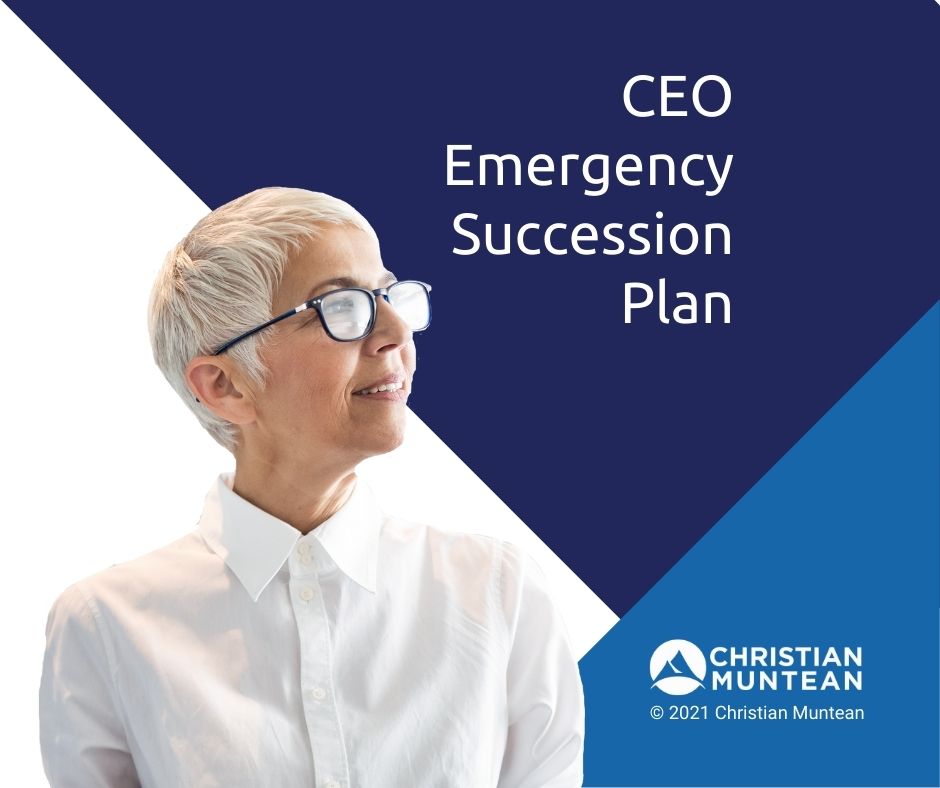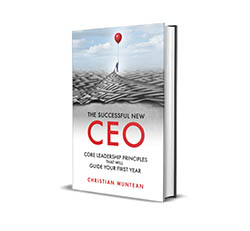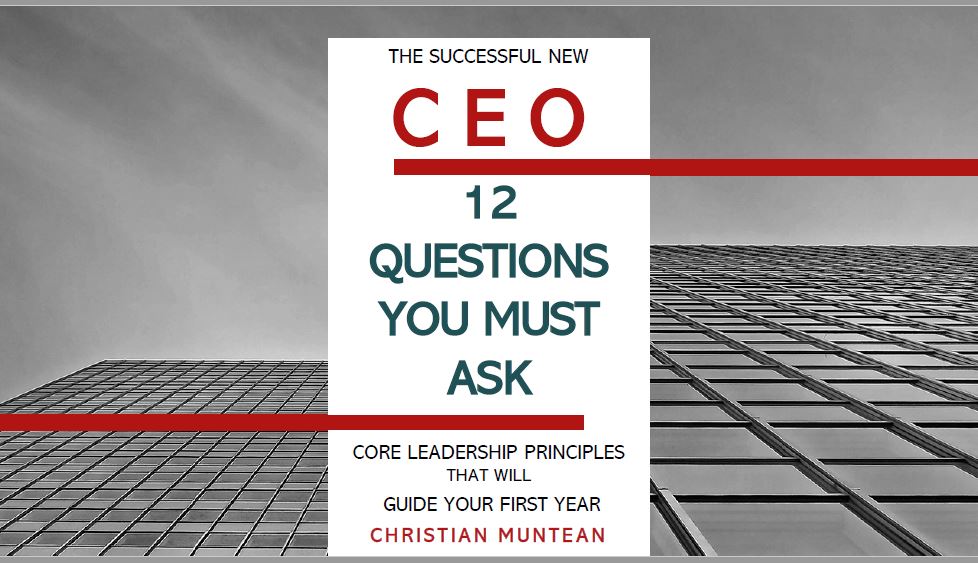Energy Sucks: Practical Steps to Stop the Drain

Energy Sucks: Practical Steps to Stop the Drain
An early client of mine was selling his business. It was the first time that I had worked with an owner navigating an exit. We did some traditional exit planning work. But much of our time was spent addressing his “junk drawer.” Accumulated tasks, loose ends, and unresolved issues.
work. But much of our time was spent addressing his “junk drawer.” Accumulated tasks, loose ends, and unresolved issues.
Over the years, he had developed a list of uncompleted tasks. A dusty to-do list. Some were in the business. Some were personal. Some directly impacted the sale of his business. Others just took up his time and weighed on his mind.
To exit well and prepare for the next chapter in life, he needed to close a few loops.
What is an open loop?
Most leaders share a common challenge: The struggle to manage priorities and time.
Within that challenge is a topic that is often unaddressed: Perennially incomplete tasks.
Leaders who couldn’t be described as procrastinators still find there are some things that they never quite get to. These are open loops that are never resolved. They drain a leader’s energy and never feed anything positive back.
We know, or believe, that we need to complete them. But we don’t.
And this creates a problem.
How do open loops impact a leader?
Open loops are a constant bleed on a leader. Specifically, they:
- Consume mental energy: Even though we don’t pursue them (or don’t pursue them to completion) they tend to hang on in the backs of our minds. This takes up space and requires energy.
- Feed anxiety: They create stress. Not completing them feels stressful. The unresolved issues that surround them might create stress. The thought of working on them feels stressful.
- Undermine self-image: Our self-image and our confidence are heavily impacted by the promises we keep to ourselves. When we take on a task but don’t complete it, it undermines both.
- Undermine credibility: When we don’t complete a task that others are relying on, it damages our credibility with them.
- Limit impact and results: Leaders who aren’t operating with full energy, feel anxious and who doubt themselves and have weakened credibility– have less impact.
All because of an undone to-do. Maybe it’s a needed but tough conversation. Or a policy that should be written. Or an insurance review that needs to be conducted. Or an opportunity that ought to be pursued.
Whatever it is that prevents us from doing what we need to do also prevents us from becoming who we need to be.
What creates open loops?
Any number of issues can create an open loop. Most of them come down to something we imagine. We might imagine that:
- We’ll make the wrong decision.
- The conversation will go irredeemably sideways.
- It’s too complicated.
- It’ll take too long.
- We’ll fail.
- We might be rejected.
- We don’t deserve or can’t be trusted with success.
Most of the above rhymes with fear. I’ve found that, rarely, are any of the imaginations above true. And even if they are – they are rarely ever well served by being put off.
Along with fear-based open loops, there are open loops caused by over-optimism or underestimation. Whatever you want to call it. But we bite off more than we can chew. An issue that we thought we could resolve in a few minutes but it turned into hours. Or hours to days. Or days to months.
These issues often drag on for two reasons:
- We actually are afraid of something, often making a mistake. So all of the decisions we need to make along the way take too long.
- The issue turns out not to be as important to us as the time apparently required to fix it. But as opposed to acknowledging that, we keep it on the list.
How to close the loops:
- Accountability: Creating accountability is one of the most effective ways to get our loops closed. Since our pattern is to not follow through – it helps to tell someone. Particularly someone we don’t want to disappoint. Because I work alone, I often hire coaches (even though I am a coach) for the purpose of providing accountability.
- Prioritize: It helps to make a “master list” of all the open loops. Then decide:
- Should they be on the list? (How much do they matter?)
- What is the cost of keeping this loop open?
- What is the benefit of closing it?
- Do they need to be completed or can I remove them from the list?
- Should they be on my list?
- If they need to be completed – who else can do it?
- If I can’t give it all away – can I give part of it away?
- Get help: Hire a coach. Talk to a counselor if there are deeper fears at play.
- Scheduling: Set aside regular time for “loop closing”. Stop your work at the given time. Set a goal to make tangible progress during each work session.
- Selecting: Pick one loop at a time. Don’t try to tackle the whole list. Pick the loop that seems to matter most.
- Decision-making parameters: Many loops involve decisions. Making the decision may be a big part of what is holding us up. Before you try to make the decision – decide what are the parameters of an acceptable (not perfect) decision. What are the top three to five (or more or less) qualities that should be met by the decision?
- Should they be on the list? (How much do they matter?)
Conclusion: The open loops that many leaders maintain are often best resolved by either delegating them or accepting they don’t really matter. However, some do matter. Make a point of addressing those.
The client I mentioned above? I recently spoke with him. Like most entrepreneurs, he’s enjoying his retirement with a variety of new business ventures. He has the time to do this, in part because he cleared low-value but high-demand to-do’s off of his list.
Steadily clear the “junk drawer” of your to-do list. It will help you accomplish much more in your leadership.
Take good care,
Christian
Save more time! Download my free guide, How To Accomplish More Without Doing More.
Further Reading
Fear: A Leader’s Greatest Enemy
Frustrated or Tired as A Leader? 5 Lessons from Elite Athletes that You Need to Know
Escape the “Busy-ness” Trap: How to Find Freedom from Never Getting Caught Up
𝗧𝗵𝗲 𝗕𝗲𝘀𝘁 𝗧𝗶𝗺𝗲 𝘁𝗼 𝗖𝗿𝗲𝗮𝘁𝗲 𝗔𝗻 𝗘𝗺𝗲𝗿𝗴𝗲𝗻𝗰𝘆 𝗦𝘂𝗰𝗰𝗲𝘀𝘀𝗶𝗼𝗻 𝗣𝗹𝗮𝗻 𝗶𝘀 𝘽𝙚𝙛𝙤𝙧𝙚 𝗬𝗼𝘂 𝗡𝗲𝗲𝗱 𝗜𝘁.
Be prepared for a smooth transition in the event of an unplanned emergency succession. My guide will show you step-by-step how to devise your own plan.
Free Leadership Resources
Whether you are a new CEO, thinking of succession or exit, or wanting to strengthen your leadership and your team, I’ve got resources to help:
Enhancing your leadership skills
Are you interested in learning more about becoming a successful CEO? If so, get a free copy of my book The Successful New CEO. Not a new CEO? I’ve been told by “old hands” that they felt any CEO should read this. So, click here to get your copy today.
by “old hands” that they felt any CEO should read this. So, click here to get your copy today.
Let’s connect.
I’m passionate about helping leaders to create workplaces they love going to and increasing the value of the services they offer. My results-oriented approach is tailored to each client’s specific situation and needs. As a leadership coach, I have developed a wealth of resources to help you and your team grow and become stronger.
Weekly Newsletter – sign up to receive my weekly articles addressing critical leadership challenges and issues.
The Leadership Coach Podcast – In my podcast, we explore effective, high-impact, and enjoyable leadership. Subscribe.
There are 𝟭𝟮 𝗰𝗿𝗶𝘁𝗶𝗰𝗮𝗹 𝗾𝘂𝗲𝘀𝘁𝗶𝗼𝗻𝘀 to ask before accepting a new CEO position. Do you know what they are? Instantly download my free e-book here.
Find the value of your company with my free assessment tool: The Value Builder System
The Value Builder System™ is a 13-minute online questionnaire that evaluates your business on the eight factors that contribute more to its attractiveness and value. These factors are scored on a scale of 1-100. Businesses that score over 80 are likely to command 70%-100% higher value than others.
Opportunities
Executive and Leadership Coaching: Do you feel overwhelmed? Are you not getting the results you expect from the effort you are putting in? Do you find yourself facing similar challenges time and time again? Would you like to change specific ways of relating or reacting? If you would like to experience predictable, measurable growth Contact me.
Profitable Exit Strategy Workshop: Are you a business owner or partner? Over 55? Starting to think about exiting your business or active management in the next 3-5 years?
- Curious about what your business might be worth?
- Would you like to discover the specific steps you need to take to increase its value and become highly attractive to a buyer?
- Are you planning on handing it over to family or employees and you want to ensure long-term success?
If so, contact me now
Categories
Get Christian’s Newest Book: Train to Lead

Download my free 10-page eBook:
How To Accomplish More Without Doing More:
Eight Proven Strategies To Change Your Life
Discover how to save eight hours during your workweek-even if you're too busy to even think about it. The resource every maxed out executive needs.

